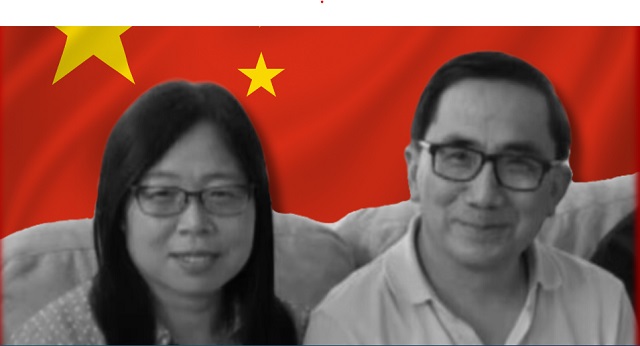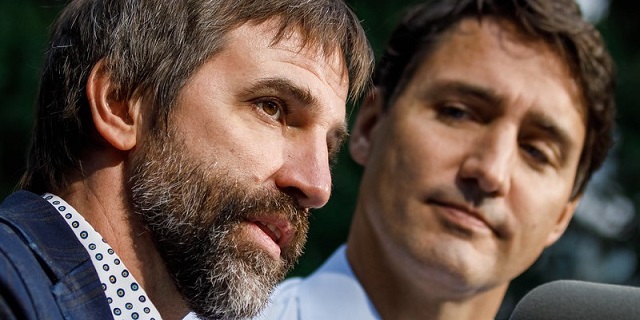Uncategorized
Mueller finds no Trump collusion, leaves obstruction open

WASHINGTON — Special counsel Robert Mueller found no evidence President Donald Trump’s campaign “conspired or
The battle began Monday as White House aides and allies blanketed television news broadcasts to trumpet the findings and claim that Trump has been the victim in a probe that never should have started.
White House spokeswoman Sarah Sanders said Trump will let Attorney General William Barr decide whether the special counsel’s Russia report should be publicly released, though she adds that “he’s more than happy for any of this stuff to come out.”
Trump cheered the Sunday outcome but also laid bare his resentment after two years of investigations that have shadowed his administration. “It’s a shame that our country has had to go through this. To be honest, it’s a shame that your president has had to go through this,” he said.
Democrats pointed out that Mueller found evidence for and against obstruction and demanded to see his full report. They insisted that even the summary by the president’s attorney general hardly put him in the clear.
Mueller’s conclusions, summarized by Barr in a four page letter to Congress, represented a victory for Trump on a key question that has hung over his presidency from the start — whether his campaign worked with Russia to defeat Democrat Hillary Clinton.
That was further good news for the president on top of the Justice Department’s earlier announcement that Mueller had wrapped his investigation without new indictments. That could deflate the hopes of Democrats in Congress and on the 2020 campaign trail that incriminating findings from Mueller would hobble the president’s agenda and re-election bid.
But while Mueller was categorical in ruling out criminal collusion, he was more circumspect on presidential obstruction of justice. Despite Trump’s claim of total exoneration, Mueller did not draw a conclusion one way or the other on whether he sought to stifle the Russia investigation through his actions including the firing of former FBI director James Comey.
According to Barr’s summary, Mueller set out “evidence on both sides of the question” and stated that “while this report does not conclude the president committed a crime, it also does not exonerate him.”
Barr, who was nominated by Trump in December, and Deputy Attorney General Rod Rosenstein, who appointed Mueller in May 2017 and oversaw much of his work, went further in Trump’s
The attorney general said he and Rosenstein had determined that Mueller’s evidence was insufficient to prove in court that Trump had committed obstruction of justice to hamper the probe. Barr has previously voiced a broad view of presidential powers, and in an unsolicited memo last June he cast doubt on whether the president could have obstructed justice through acts — like firing his FBI director — that he was legally empowered to take.
Barr said their decision was based on the evidence uncovered by Mueller and not affected by Justice Department legal opinions that say a sitting president cannot be indicted.
Mueller’s team examined a series of actions by the president in the last two years to determine if he intended obstruction. Those include his firing of Comey one week before Mueller’s appointment, his public and private haranguing of then-Attorney General Jeff Sessions for recusing himself from the Russia investigation because of his work on the campaign, his request of Comey to end an investigation into Michael Flynn, the White House’s first national security adviser, and his drafting of an incomplete explanation about his oldest son’s meeting with a Russian lawyer during the campaign.
Mueller’s findings absolve Trump on the question of colluding with Russia but don’t entirely remove the legal threats the president and associates are facing. Federal prosecutors in New York, for instance, are investigating hush-money payments made to two women during the campaign who say they had sex with the president. Trump’s former personal lawyer, Michael Cohen, implicated Trump in campaign finance violations when he pleaded guilty last year.
The special counsel’s investigation did not come up empty-handed. It ensnared nearly three dozen people, senior Trump campaign operatives among them. The probe illuminated Russia’s assault on the American political system, painted the Trump campaign as eager to exploit the release of hacked Democratic emails to hurt Hillary Clinton and exposed lies by Trump aides aimed at covering up their Russia-related contacts.
Thirty-four people, including six Trump aides and advisers, were charged in the investigation. Twenty-five are Russians accused of election interference either through hacking into Democratic accounts or orchestrating a social media campaign to spread disinformation on the internet.
Sunday’s summary — and its suggestion that Mueller may have found evidence in support of obstruction — sets up a fight between Barr and Democrats, who called for the special counsel’s full report to be released and vowed to press on with their own investigations.
“Attorney General Barr’s letter raises as many questions as it answers,” House Speaker Nancy Pelosi and Senate Minority Leader Chuck Schumer said in a statement.
“Given Mr. Barr’s public record of bias against the special counsel’s inquiry, he is not a neutral observer and is not in a position to make objective determinations about the report,” they said. Trump’s own claim of complete exoneration “directly contradicts the words of Mr. Mueller and is not to be taken with any degree of credibility,” they added.
Trump was at his Florida estate when lawmakers received the report. Barr’s chief of staff called Emmet Flood, the lead White House lawyer on the investigation, to brief him on the findings shortly before he sent it to Congress. Mueller submitted his report to Barr instead of directly to Congress and the public because, unlike independent counsels such as Ken Starr in the case of President Bill Clinton, his investigation operated under the close supervision of the Justice Department.
Barr did not speak with the president, Mueller was not consulted on the letter, and the White House does not have Mueller’s report, according to a Justice Department official.
Though Mueller did not find evidence that anyone associated with the Trump campaign
That’s a likely reference not only to a June 2016 Trump Tower meeting at which Donald Trump. Jr. expected to receive damaging information on Clinton from a Kremlin-connected lawyer, as well as a conversation in London months earlier at which Trump campaign aide George Papadopoulos was told Russia had “dirt” on Clinton in the form of thousands of stolen emails.
Rep. Jerrold Nadler of New York, the House Judiciary Committee chairman, said Congress needs to hear from Barr about his decision and see “all the underlying evidence.” He said on Twitter, “DOJ owes the public more than just a brief synopsis and decision not to go any further in their work.”
Barr said that Mueller “thoroughly” investigated the question of whether the Trump campaign
Barr said Mueller also catalogued the president’s actions including “many” that took place in “public view,” a possible nod to Trump’s public attacks on investigators and witnesses.
In the letter, Barr said he concluded that none of Trump’s actions constituted a federal crime that prosecutors could prove in court.
____
Associated Press writers Jonathan Lemire in New York, Deb Riechmann in Palm Beach, Florida, and Mary Clare Jalonick and Lisa Mascaro in Washington contributed to this report.
___
Online: Read the letter: http://apne.ws/Am0jB94
Follow all of AP’s Trump Investigations coverage at https://apnews.com/TrumpInvestigations
Eric Tucker, Michael Balsamo, Chad Day And Julie Pace, The Associated Press
Uncategorized
RCMP recruitment failure has Alberta advocacy group calling for Provincial Police Service

News release from Free Alberta Strategy (A Strong And Sovereign Alberta Within Canada)
“Make no mistake, we are paying for these services that we aren’t receiving. Alberta’s taxpayers are paying tens of millions of dollars for nearly 400 vacant RCMP officer positions – for boots that are not on the ground.”
A recent report from the Royal Canadian Mounted Police (RCMP)’s independent Management Advisory Board had findings that are nothing short of alarming:
“Federal policing has now arrived at a critical juncture of its sustainability, which present risks for the national security and safety of Canada, its people, and its interests,” says the report.
After over a year of diligent study, the Board has been tirelessly firing off flares, signalling to all who will listen: the very foundation of our national public safety apparatus may be at risk of faltering.
This is doubly problematic because, as you well know, the RCMP is also responsible for boots-on-the-ground policing in large parts of the country, including many rural and remote areas – including in Alberta.
Rural crime has been a longstanding issue in Alberta, and social disorder continues to make headlines nightly.
Alberta Minister of Public Safety, Mike Ellis, took to social media platform X (formerly known as Twitter) to express his opinion:
“The independent report finds the RCMP has struggled in recent years to recruit and retain regular members, a problem that’s particularly acute in federal policing. This is not about the hard-working men and women on the frontline: they are doing everything they can. The reality is the RCMP do not have enough officers to police communities in Canada effectively.”
Ellis has been ahead of this story for months now.
In March, Ellis stated that:
“… on average, Alberta has an RCMP officer vacancy rate of 20 per cent. This means that Alberta is only being served by 1,522 of the 1,911 RCMP officers that the federal government has authorized for Alberta.”
“Make no mistake, we are paying for these services that we aren’t receiving. Alberta’s taxpayers are paying tens of millions of dollars for nearly 400 vacant RCMP officer positions – for boots that are not on the ground.”
The consequences of this capacity crisis are far-reaching.
Not only does it jeopardize the safety of Albertans, but it also undermines the credibility of Canada’s federal police force on the international stage.
With limited resources and personnel, the RCMP’s ability to address pressing national and global security concerns is severely compromised.
The Management Advisory Board, created in 2019 by the federal government to provide external advice to the RCMP commissioner, set up a task force in the fall of 2022 to study the federal policing program.
Overall, the report says budget and personnel shortfalls have left the RCMP “operationally limited,” restricting the number of cases it can take on annually.
Here are some more highlights from the report:
“Canada and its people have already begun to see the repercussions of the federal policing program being stretched thin.”
“Federal policing’s overall eroding capacity may have implications for the credibility of Canada’s federal police force and its investigations on the international stage.”
“Ultimately, this may influence Canada’s overall approach and standing in international politics, including its ability to advance global priorities.”
Clearly, we cannot afford to wait any longer.
Municipalities can ease the burden on our national security services by establishing municipal policing.
Several cities in Alberta already have their own police authorities, and the provincial government is providing funding for others interested in exploring this option.
Grande Prairie is already in the process of establishing their own municipal police service.
No word on how many other municipalities have taken the government up on their offer.
Unfortunately, President of Alberta Municipalities Tyler Gandam (also Mayor of Wetaskiwin) is featured prominently on the National Police Federation’s “Keep Alberta RCMP” website.
Interestingly, the Keep Alberta RCMP website doesn’t mention the fact that the advisory board even exists.
It doesn’t mention the report.
The notion that our federal policing infrastructure teeters on the brink of instability while Gandam appears to be asleep at the wheel, is deeply disconcerting.
The safety and security of Albertans must remain our top priority.
We cannot afford to wait any longer.
The time has come for the province to take swift and decisive measures to bolster policing capabilities in Alberta.
It’s time for Alberta to seriously consider the establishment of an Alberta Provincial Police Service.
It has been one of the core tenets of the Free Alberta Strategy.
If you agree, please reach out to your municipality and ask them to take steps to protect your community.
Together, we can keep Alberta safe.
Regards,
The Free Alberta Strategy Team
P.S. We’re hoping you’ll consider contributing to our cause. Your generous donation helps us make a positive impact in our community. No need to worry about any hold-ups or threats here. We’re just passionate about making a difference, and your support goes a long way in helping us achieve our goals.
Uncategorized
Making Alberta a geothermal energy leader

Eavor announces it’s the #1 geothermal energy startup company in the world – January 2024
Alberta is creating Canada’s first geothermal test site to advance drilling innovation, reduce emissions and create jobs.
Geothermal energy uses naturally occurring heat within the earth to heat water and buildings and generate power, with few emissions or environmental impacts. Alberta has vast pockets of heat below ground, making the province Canada’s geothermal leader, but testing and developing new technologies can be a barrier for many companies. Unlike the United States, Japan and other countries, Canada does not currently have an open-access test site to help spur innovation.
Alberta is taking the first steps to create a new Alberta Drilling Accelerator. This groundbreaking facility would be the first of its kind in Canada, establishing Alberta as a global hub for geothermal technology. This will drive new innovations in geothermal and other clean energy projects that can reduce emissions and power communities around the world.
To kick-start the project, the Alberta government is investing $750,000 to conduct a feasibility study led by Calgary-based Eavor Technologies and other stakeholders. The study is the first step in assessing the proposed facility. It will include identifying a site, business planning, research on the governance model, an economic impact analysis and stakeholder engagement that will lay the groundwork for the initial planning stages of the project.
“Alberta has been a global energy leader for more than a century, renowned for our skilled workforce, innovation and one of the largest oil and gas reserves on the planet. The proposed Alberta Drilling Accelerator presents enormous potential to help our province lead the next wave of energy projects here at home and around the world that reduce emissions, create jobs and enhance energy security.”
The Alberta Drilling Accelerator would help companies test out and develop new geothermal drilling techniques or technologies to reduce emissions and drive growth across the clean energy sector. It would be an open-access, technology-agnostic drilling test facility capable of drilling in challenging environments, including deep depths, high temperatures and different rock types.
The accelerator also would help speed up the development of carbon capture, utilization and storage; helium; critical minerals; and other clean technologies and commodities that rely on Alberta’s drilling sector. All of this helps attract investment and bring new technologies to scale in Canada.
“With cumulative geothermal investment poised to reach $1 trillion by 2050, a geothermal arms race is very much underway to commercialize novel drilling techniques that accelerate geothermal development – exhibited by testing facilities in the United States, China and Iceland. As Canada’s first geothermal test bed, the Alberta Drilling Accelerator will help bring geothermal technologies to scale, supporting companies like Eavor. We commend the Government of Alberta for this bold initiative.”
“We are proud to witness Eavor, a CDL-Rockies alumni company, create new opportunities for innovators like themselves to advance the adoption of energy transition technologies like geothermal. The Alberta Drilling Accelerator will further solidify Alberta’s position as a leader in the global sustainable energy landscape.”
If the feasibility study shows the facility is economically and environmentally viable, and if the project is approved by the Alberta government, the facility will start taking shape at the selected site and drilling could start as early as 2025.
“Canada is home to the most advanced drilling technology in the world. Not only do our members support the responsible development of oil and gas, but we are integral in the extraction of new energy resources like geothermal and critical minerals. Our workers are at the epicentre of Canada’s energy transformation. Our people, technology and processes are leading the way towards a more diverse energy future. The Alberta Drilling Accelerator is a government-enabled policy approach to expand Alberta’s drilling capacity and reach its full potential as the world’s most diverse and technologically advanced producer and exporter of sustainable energy and critical minerals.”
“The Alberta Drilling Accelerator is a testament to Alberta’s innovative and entrepreneurial spirit. Leveraging our oil and gas sector expertise, Alberta is poised to become the global leader in developing new geothermal technologies that will play an integral role in reducing emissions while supporting job creation.”
Quick facts
- The Canadian Association of Energy Contractors estimates that one active drilling rig, whether drilling for natural gas or geothermal, creates approximately 220 direct and indirect jobs and
$1 million in tax revenue. - In 2019, Eavor received $2 million in provincial funding through Emissions Reduction Alberta and Alberta Innovates for the world’s first closed-loop geothermal system.
Related information
-
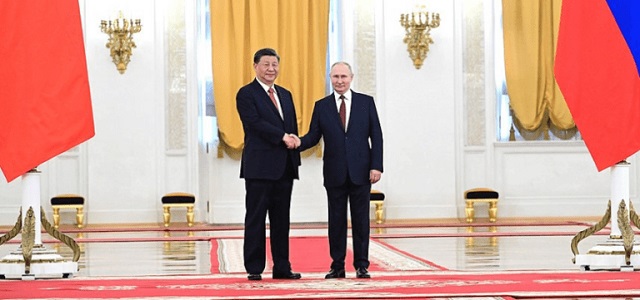
 Agriculture2 days ago
Agriculture2 days agoThe China – Russia “Grain Entente” – what is at stake for Canada and its allies?
-
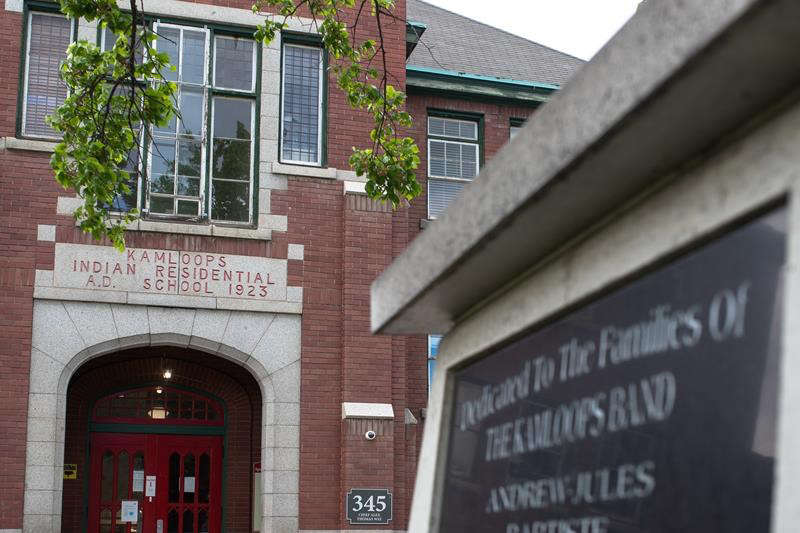
 Indigenous20 hours ago
Indigenous20 hours agoNo accounts on $7.9 million dollar ‘Truth’ Fund
-
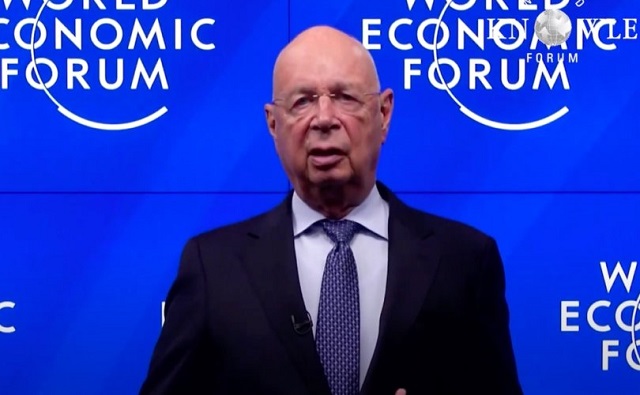
 Great Reset2 days ago
Great Reset2 days agoDr. Robert Malone reacts to Klaus Schwab’s resignation: ‘Resistance is not futile’
-
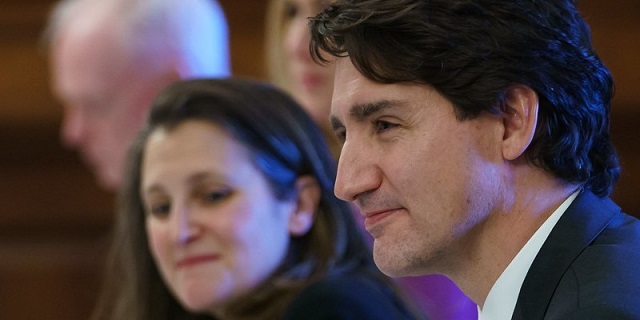
 Fraser Institute16 hours ago
Fraser Institute16 hours agoFederal government should have taken own advice about debt accumulation
-
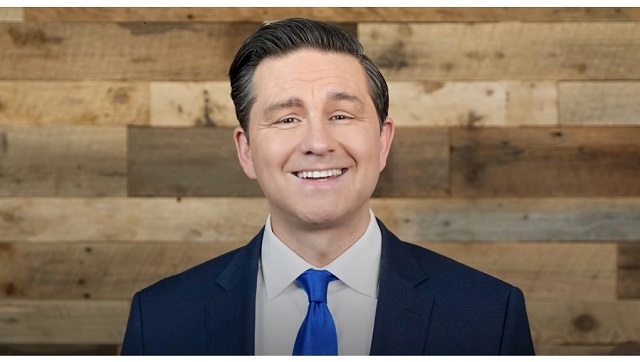
 Bruce Dowbiggin2 days ago
Bruce Dowbiggin2 days agoThe Most Dangerous Man In Canada: Emmanuel Goldstein Reborn
-
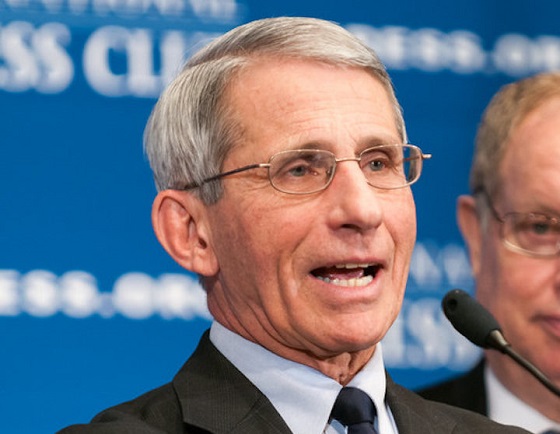
 COVID-192 days ago
COVID-192 days agoFauci’s Top Advisor May Have Illegally Evaded Records Requests, Experts Say
-
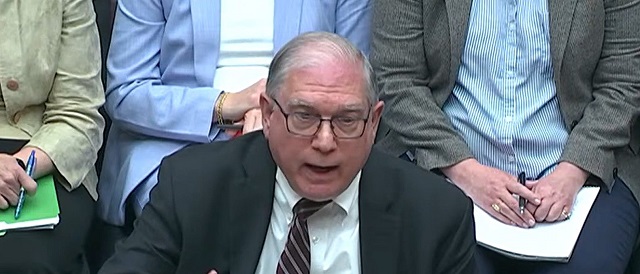
 COVID-191 day ago
COVID-191 day agoHouse COVID Committee Confirms What We Have Long Suspected — The Feds Really Hate Transparency
-

 Health1 day ago
Health1 day agoUniversity of Toronto Study Finds Teen Marijuana Use Tied To Dramatic Increased Risk Of Psychosis

